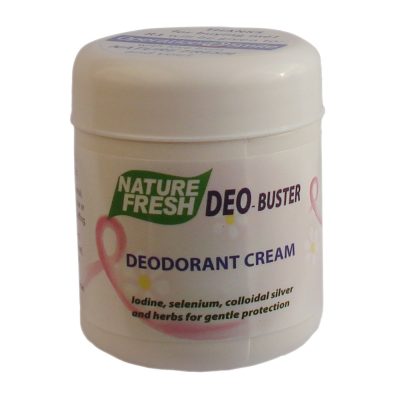Body Odour Problems
Underarm odours create a booming trade for products that claim to stop the
pong, but at what cost?
The more you pay the more you stink, it seems. Then
they tell you that ingredients like aluminium and parabens are linked to
breast cancer. What now? Are so-called natural things like bicarb and
vinegar supposed to give you the same all day confidence? At best they will
not interfere with perspiration and that will help to reduce your breast
cancer potential, but the odour may be exacerbated. We need to understand
the mechanisms behind body odours – the science of stink.
The Solutions create more problems
Solutions, products and advertising are aimed at our armpits. Some of the
spray-on solutions also claim to give you sex appeal. Spray-on adoration,
yet we pretend that the rest of our smelly issues do not exist. The stinky
feet and fish market vaginas will continue to contribute to the malodorous
bouquet that is highlighted with taints of urine and faeces. We humans have
characteristic odours and this is why we take a bath, to wash away the array
of waste substances that cause stinky bacteria to proliferate and infiltrate
the air. Once airborne, odours gather momentum and accost our olfactory
glands. We label them as unpleasant but they are actually quite natural. To
animals and in primitive anthropology it is the reek of soap and perfume
that’s not natural. Our noses detect all types of volatilized chemical
compounds and we react emotionally to them, giving them a nice or a nasty
label according to the association.
Blame it on the bacteria!
Perspiration is odourless and even urine is not stinky when it is excreted.
But oh my, let the bacteria carried by these substances grow in an
environment at a compatible temperature and pH and the pong will overpower
you. Even a whiff in the freshest air can cause a turn off. We use products
that kill bacteria and hope for the best. We wash with very alkaline super
cleaning anti-bacterial soaps – anything they advertise, and yet the body
odours persist. In some cases they even get wore. We wash even more; use the
wrong soap and infections like candidiasis go rampant. A perfumed cover-up
spray does not solve the problem for the mucous membranes of intimate areas
that are not maintained at an acidic pH of 3.5. In this case an acidic
douche and not a deodorant will do a better job. We do not need vaginal
deodorants – just a better understanding of pH control. There are already
special cleansers and lubricants available and the only thing to avoid is
common old soap!
How does Zinc Ricinolate work?
The true science of stopping odours in their tracks is about trapping the
volatile air borne odours where they occur – on the skin, before they begin
to drift. Wow! How does this happen? It is best to first know your enemy,
empower yourself by discovering what causes Body odour.
According to the research department of big international cosmetic
laboratories like Schill and Seilacher we have distinct categories of odours
to contend with. They are based on familiar chemicals such as sulphur
(rotten egg association) and ammonia (old urine) to name a few. They claim
that the new wonder chemical zinc ricinoleate that is based on an extract of
castor oil will help us to overcome these stenches; so hold your nose, here
they come!
Sulphur containing chemicals produce the following odours:
Rotten eggs (hydrogen sulphide)
Garlic and onions (Allicin)
Cat urine (3-Mercapto-3-methylbutan-1-ol or MMB)
Nitrogen containing chemicals are associated with these odours:
Urine deposits (Ammonia)
Faeces (Indole and Skatole)
Rotting flesh – from Infected lesions or gangrene (Cadaverine and
Putrescine)
Other volatile components: Bacteria infested sweat (Isovaleric acid ) and
old cigarette smoke – yuk!
Introducing Zinc Ricinoleate
The wonder chemical Zinc ricinoleate is a zinc salt of ricinoleic acid, a
purified fatty acid from castor oil. This well-known folk medicine is
obtained from the seeds of the Ricinus communis plant. In our youth, castor
oil was the cure for constipation and “school sickness”. Even today, many
people swear by castor oil packs to relive anything from menstrual cramps to
fever, toxicity or gallbladder problems. Although ricin, a chemical that is
present in castor oil beans is toxic, nobody has ever dropped dead from
taking castor oil. But that is because oil deactivates ricin, the poisonous
component that is a water based (and deadly) toxin. In the event of a stray
ricin molecule, the manufacturing of castor oil involves a heating process
that neutralizes and effectively deactivates the protein. In other words,
our new Saviour, the ultimate deo-buster is non-toxic. It won’t even give
you a rash, but it will trap all the stinkies before they make you smell
iffy!
Try our Nature Fresh Deo Buster deodorant today!
Click on picture for more info
Sources for article:
More information on Zinc Ricinoleate
